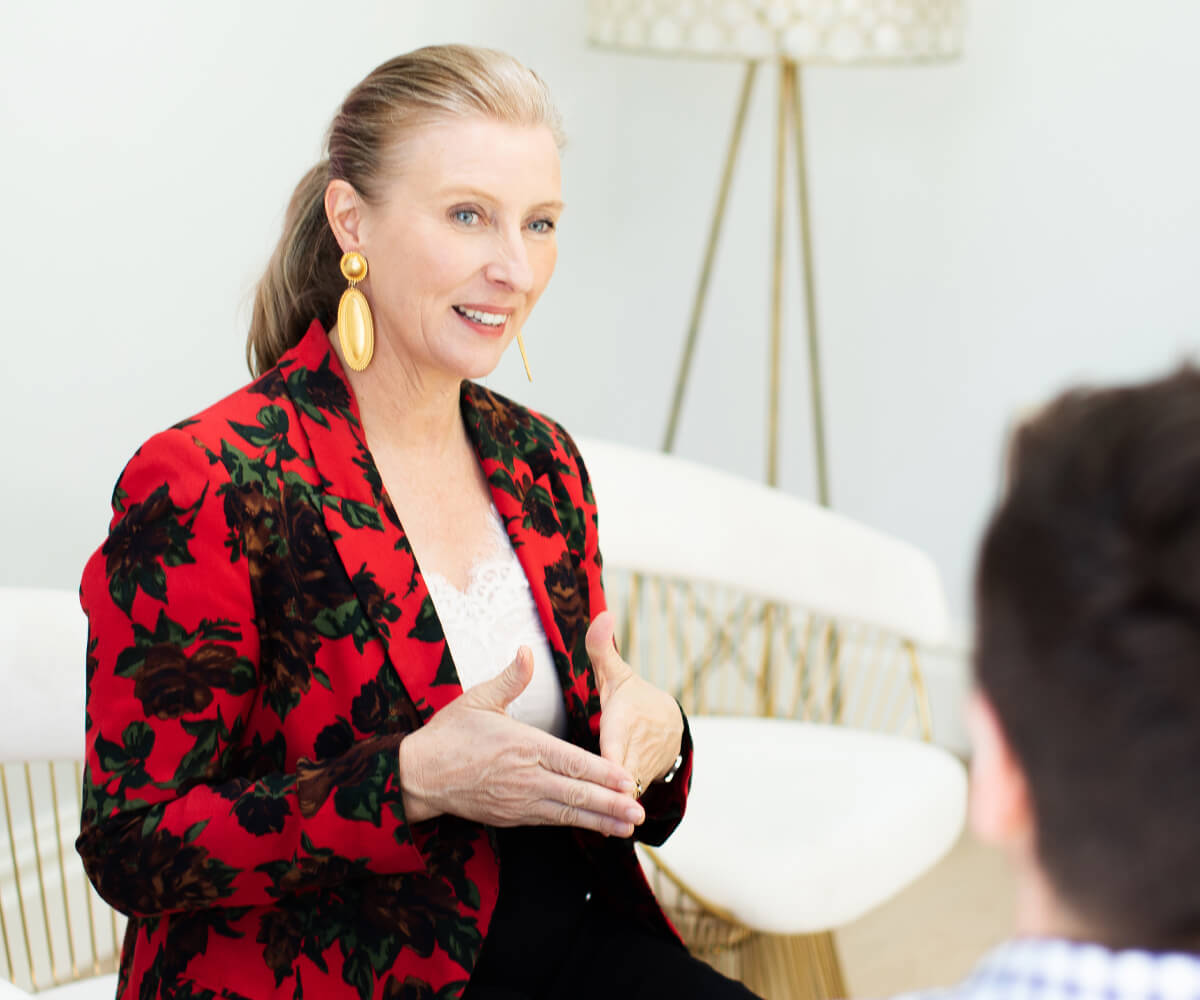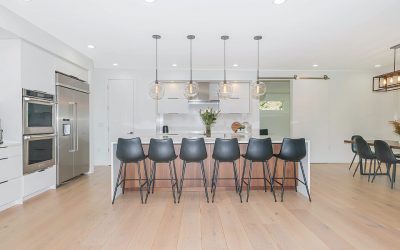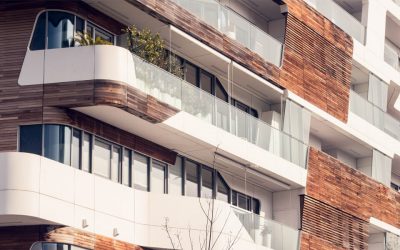In This Article You’ll Learn About:
- Treat your property as a business
- Landlord insurance, as well as building insurance, should be a must
- Objectively look at your property and ask if it is in a homely condition?
- Make a list and prioritise what needs to be done
- Make sure your smoke alarms are fitted and working
- Pay attention to the floors and the paintwork
- Research the market, and make sure to have the right price expectations
- Decide on whether to furnish
- Ensure it has been fully professionally cleaned before the tenant moves in
- Consider changing curtains to blinds, and old blinds for roller blinds
- Consider adding flyscreens to windows/ external doors
- Consider heating/ cooling options
- Make sure your main kitchen appliances are in good working order
- Make sure there are no issues with your plumbing
- Make sure you have keys and spares for everything
- Clean/tidy the external areas
- Consider getting a Tax Depreciation Schedule
- Decide your stance on pets
- Start a maintenance fund
- Set your mortgage payment dates smartly
- BONUS TIP: Decide whether to use a Property Manager or not.
Preparing your property for rent for the first time can sometimes seem like a daunting task, especially if you are moving out of your home or if you have bought an investment property that’s interstate or not local. But rest assured, as thousands of Aussies go through this every year, and in this article, I want to take you through the best tips from the professionals to help you with the best first-time landlord guide available. So without further ado, let’s get into the 20 expert tips for renting your property for the first time.
1. Treat your property as a business, because it is

Being a landlord may not be your primary job or main source of income, but it is a form of business and contributes to your future wealth. Bearing this in mind, treat it as the business that it is, by keeping it in a good state of repair, being professional with your tenants and property managers and ensuring you always have a sinking fund in case there is a need of urgent repairs.
It’s also good to be well versed in state legislation as to what your requirements are as a landlord – a good property manager can inform you of these if you aren’t sure where to start with this. Legislation is often changing and so it is good to always keep up to date with the latest laws.
This way you can work as a team with your PM – if you are professional and aware, then you can back your PM up and help them do their job without hindrance. Don’t make your PM afraid to contact you by being negative or shooting the messenger. You want them to be proactive and keep your property in top condition. Remember it’s not their fault if the dishwasher breaks down.
2. Landlord insurance, as well as building insurance, should be a must

Most first-time landlords will already know about building insurance, however, not all know about landlord insurance. Typically, landlord insurance will cover you for many instances where a tenant suddenly vacates.
It is always good to do your research on which provider to go with, but generally speaking, you should find one with a good track record of actually paying out as no matter what, unfortunately, most experienced landlords will have had to make a claim on their landlord insurance at some point.
Building insurance is still necessary too as tenants will only be able to get contents insurance. You may not need this insurance if your property is a unit or a strata title property, as they often cover this, however, if the property is a house, then you will need it.
3. Objectively look at your property and ask if it is in a homely condition?

Finding a good quality tenant is easy when you present them with a good quality property and are a good quality landlord (generally). What I mean by this is simple: time and time again, the landlords who constantly complain about their tenants being bad don’t realise that they keep attracting these tenants because they didn’t maintain their property or present it as a home to be lived in.
A good thought to keep in mind is: “would I live here”? If the answer is no or maybe not, then this might be why a landlord keeps attracting lower quality tenants and has a larger amount of repairs.
4. Make a list and prioritise what needs to be done

As much as it would be great to do everything and present prospective tenants with a fully renovated property, it’s not always practical, economical, or possible to complete it all. The best thing to do in this instance is to make a list of everything that needs to be done, or that you would like to do.
Once you have made your list, rank it in order of priority, either through advice of what’s worth it, what’s possible, what is needed to make the property liveable, and what could potentially wait until after the tenant moves in if you are running low on time or money.
5. Make sure your smoke alarms are fitted and working
This is both a legal requirement and an easy thing for a landlord to forget. A smoke alarm in the rental property is an important safety aspect to ensure it is working before your first tenancy, and of course, to regularly test.
In some units, the strata undertake the annual checkups, but to be sure, you should make arrangements yourself. There are two types of smoke alarms fitted in homes; battery-operated and hardwired. It’s good to know what yours is so that you can ensure it is maintained properly.
6. Pay attention to the floors and the paintwork

After entering the front door, the first two things that your prospective tenants will look at are the floor and the walls. Many seasoned tenants understand that heavily cracked paint and a fraying carpet can be an indicator of a landlord that’s unwilling to spend money on the upkeep of the property.
Conversely, brand new carpet and a fresh lick of paint can do wonders for the perception, almost working as a camouflage for other issues with the property (if there are any). Because of this, tenants are encouraged that this is a nice and homely place to live, and they are more likely to offer your asking price.
7. Research the market, and make sure to have the right price expectations
This can be a tough one for many first-time landlords. Doing your research and setting the price right is important to be able to find a high-quality tenant, and quickly. You don’t want to spend six weeks trying to find a tenant, and, conversely, you don’t want to find a bad one in three days.
The trick is to get the right price and be competitive with the other rental property options available to prospective tenants. More eyes on your property means more potential applicants which means more choices available to you, meaning you can pick the best of the bunch.
8. Decide on whether to furnish

Typically properties are rented out either completely unfurnished or with furnishings. Do some research into your local market, the type of property you have, and the type of tenants you want to attract to work out whether you want to lease out as furnished or not.
Generally speaking, fully furnished properties can attract a little more in rental returns but are likely to be shorter lease terms due to the nature of which type of tenant needs them. Usually, they are in a transition period of their life, for example, after moving interstate or from a divorce or break-up.
On the other hand, an unfurnished property has a longer average lease term as the tenant’s generally don’t want to move with all their furniture too many times in short succession. Keep this in mind when deciding how to approach the market.
9. Ensure it has been fully professionally cleaned before the tenant moves in

You want the tenancy to start as smoothly and headache-free as possible, and this means making it ready to move into. One of the most common day one complaints we see from tenants is when a property is not fully clean. In this way, it’s the same as if you have just settled on your new home, picked up your keys and arrived at the front door with the removalists only to find the place dirty.
Cleanliness is a relatively subjective term as one person’s clean might be another person’s dirty, so I always recommend going through a professional cleaning service – they do a consistently good job and you can tell them specific areas of focus when cleaning too, such as your oven, range hood, blinds or floors.
10. Consider changing curtains to blinds, and old blinds for roller blinds
Most tenants favour horizontal roller blinds for both the aesthetic and the ease of use. When you look for a new tenant you want to make your property as appealing to them as possible, and a question that does often come up through the leasing process is regarding the blinds.
We have found horizontal roller blinds generally to be reasonably priced, and easy to maintain and operate throughout a tenancy. This is good for you as a landlord too, as it requires less ongoing maintenance or replacement expenditure throughout the tenancy and subsequent ones too.
11. Consider adding flyscreens to windows/ external doors

One of the most common tenant requests we get in Sydney is for flyscreens. Ultimately, many people in Sydney are not big fans of allowing mosquitoes and other pests into their homes freely. However, as Sydney is also a high humidity city, it is vital that good ventilation is allowed throughout to avoid cases of mould.
As there are different flyscreen solutions out there, and it can help capture a good quality tenant, I suggest always at the very least obtaining quotes on fly screens so that you can either be ready to install pre-tenancy or at least react quickly if the request does come in.
12. Consider heating/ cooling options

Another common question asked by tenants is whether a property has air-con, or heating. Usually, air con is the more pressing issue in Sydney, especially as Spring and Summer tend to be peak moving seasons. If your property doesn’t currently have any type of cooling, I would suggest looking into ceiling fans or a reverse cycle system.
Heating may not be as pressing, however, if you are looking into a reverse cycle option, I would recommend going for one that can also do heating.
13. Make sure your main kitchen appliances are in good working order
The four main appliances here are the cooktop, oven, range hood and dishwasher, depending on if they are present in the property. Make sure they are either new or at least in good working order, as this is both a requirement (if advertised and included on the lease as having these appliances), and something which can be a pain point for a tenancy.
Properties can be leased or left vacant based on the condition of the kitchen, and as such, it is important to look at these four appliances the most. The newer they are or look, the more interest from tenants and likely they will apply.
14. Make sure there are no issues with your plumbing

Doing things like testing the water pressure, making sure the shower alcove is sealed properly and not leaking, and maybe getting a plumber to come in and test the pipes for blockages is a good idea. I would also suggest they look at your hot water heater tank as well, as this can be a costly emergency maintenance item.
Leaking showers or overflowing toilets can lead to conflict during a tenancy, as tenants can become stressed by it and they can often put us as agents, and you as a landlord, on the backfoot with rent reduction requests.
You can’t always prevent this from happening of course, but at least getting them checked out will help you catch potential issues, or have some peace of mind that there are none going into your first tenancy.
15. Make sure you have keys and spares for everything

And by everything, I mean everything. Everything that the tenant needs access to – whether it be the front door keys, the main building security key, the garage, the balcony door, external laundry etc. There may be some keys that are unnecessary for the tenant, for example, the MDF room, but it’s still important to have this on hand and ensure that your property manager has this key if needed.
Keys can be a pain when the wrong ones are given out, or they don’t work, or even simply if too many are handed to a tenant. You should always aim to have one set for each tenant on the lease, plus at least one spare set for you or the agent to keep in case of emergency.
16. Clean/tidy the external areas

Often a forgotten component of preparing the property for rent, is the external areas, assuming the property has them. Could be the back or front garden needs a prune, trim, weeding, or lawn mowing. Or it may be that the balcony needs to be swept. Whatever the situation, it’s good to have this ready ahead of the new tenancy.
Many tenants pick their new home based on all its features, including the outdoor area. In Sydney, tenants love to have a bit of alfresco living and if this area is untidy or unkempt on day one, it can set the wrong tone for the start of your first tenancy.
17. Consider getting a Tax Depreciation Schedule

A tax depreciation schedule is a full report of all the depreciating assets you can claim at tax time for your property. The more renovations or upgrades you have made, the more you can claim back, and if the property is brand new off the plan and nobody has ever lived in it, your schedule will last for 40 years!
Many landlords either don’t know about tax depreciation schedules or aren’t sure the best way to go about getting one. They are really easy to do and the benefit is not just now, but potentially every tax year for up to 40 years.
18. Decide your stance on pets

In Victoria, landlords may not have the choice anymore, but here in New South Wales, we do. You are not obligated to approve tenants who have pets. But it is a good idea to make the decision now. If you will be open to pets, think about what types of pets, how many, and what size (for a dog for example).
This is a decision that is very easy to put off or ignore until you have to make it, and this only leads to feeling pressured, approving a tenant with a big dog, and then regretting it, or, conversely, rejecting a tenant with a cat and then being on the market for another 3 weeks. Make your mind up early, and then be flexible from there.
19. Start a maintenance fund

Just like body corporates have to do with their sinking fund, as a landlord, you should be prepared for the event of maintenance, including expensive urgent jobs. These can and will happen, so start from the beginning by leaving aside a set percentage from each month’s rental income for this.
You might want to consider 10% each month – by the end of your first year you will have a decent pot to cover some major maintenance works. Maintenance can be very daunting – especially as sometimes, as in the cases of emergencies, it can hit us out of the blue. This is why it’s always better to be prepared.
This way you are mentally prepared and less likely to have a conflict with the tenant over demanded or needed repairs. Just remember your Property Manager can only work with what you give them, it’s your property at the end of the day, and if you don’t allow the budget to keep the property well maintained the tenants will not be as good, vacate often and conflict can arise.
20. Set your mortgage payment dates smartly

Usually, if you use an agency, they will do payouts of your rent on the last business day of each month. Many landlords fall into the trap of having their mortgage payments due on the first or second day of the following month, which doesn’t allow for much margin of error (public holidays, tenants late on rent etc). It can also be a challenge if you are totally reliant on the rent money to cover the mortgage.
Some agencies offer different payment schedules to suit this better, but I recommend going with a similar setup to your maintenance fund, where you set aside an amount each month to cover any delays or deficiencies so you can still have your mortgage paid.
21. BONUS TIP: Decide whether to use a Property Manager or not.
This can be one of the hardest decisions for renting out your first property, but I recommend going with a Property Manager. They are there to be the experts, stress alleviators, and dirty work doers so you can just sit back and wait for the rent to come to your account.
For a first-time landlord, I would always suggest a more boutique agency like Charlotte Peterswald Sydney over the large corporate structures. This is because they can give both you and your tenant a bit more time and attention when needed, unlike at a larger company where you can be seen as another number.
Read our comprehensive guide of how to choose a good property manager and whether or not you should use a property manager.
Now you’re ready to be a landlord!
Hopefully, by reading these expert tips you are now ready to prepare your property for rent for the first time. With Charlotte Peterswald Sydney, you can have a Property Management team full of the right advice and expert knowledge that over 50 years of combined experience brings. When you are relatively inexperienced and new to being a landlord, it’s great to have such a team walking with you every step of the way.
Being a landlord is a responsibility as well as a privilege – it’s not easy but it’s not as hard as you might think either. Whether you do go with a property manager or not is up to you, but following these steps should be non-negotiable if you want to be a successful, productive landlord! That being said, I am sure you will be!





